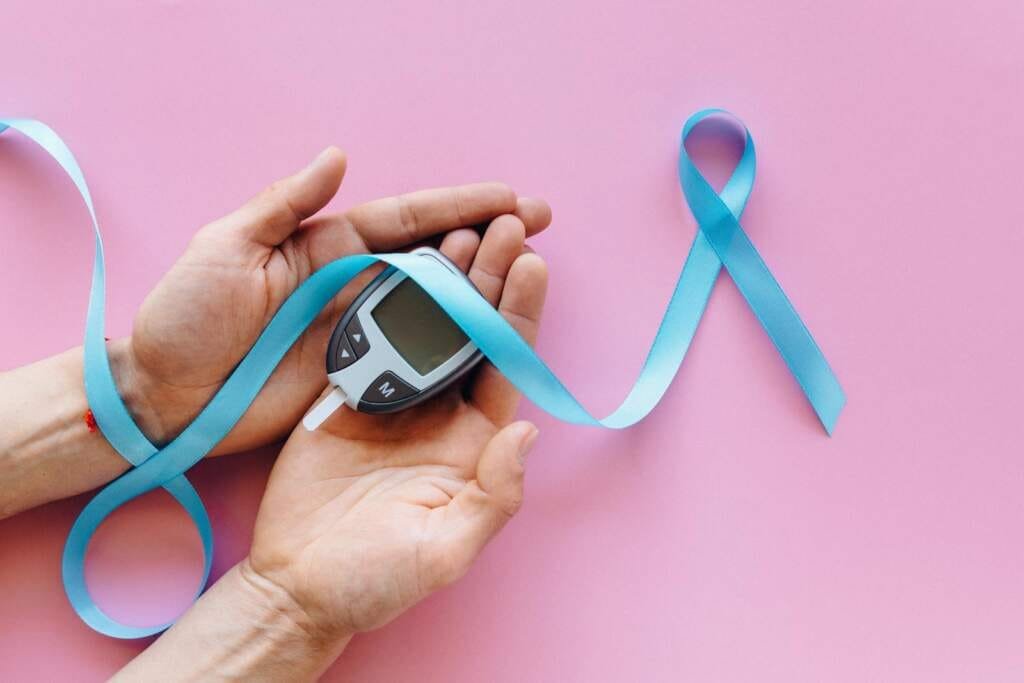Table of Contents
Diabetes Mellitus, often simply referred to as diabetes, is a chronic condition affecting millions worldwide. Characterized by elevated blood glucose levels, it stems from issues with insulin production, insulin action, or both.
Effective management of diabetes is not just about controlling blood sugar; it’s about adopting a holistic approach that encompasses lifestyle changes, medication, education, and ongoing support to minimize complications and enhance overall well-being. But when faced with the question, “What is the best management of diabetes?”, the answer isn’t a one-size-fits-all prescription. Instead, the “best” management is deeply personalized, tailored to individual circumstances, needs, and preferences.
This article delves into the multifaceted world of diabetes management, exploring the key pillars that contribute to effective control and a healthier life for individuals living with this condition. We will unpack the crucial elements, from lifestyle modifications to medication therapies, emphasizing the importance of a collaborative and individualized approach.
The Cornerstones of Effective Diabetes Management

Managing diabetes effectively requires a comprehensive strategy that addresses various aspects of health. It’s not merely about taking pills; it’s about adopting a lifestyle that supports healthy blood glucose levels and reduces the long-term risks associated with diabetes. Here are the fundamental pillars:
1. Lifestyle Modifications: The Foundation of Diabetes Care
Lifestyle changes form the bedrock of any diabetes management plan. These modifications are often the first and most crucial steps, regardless of the type of diabetes or the need for medication. Key lifestyle components include:
- Dietary Adjustments: A diabetes-friendly diet is not about deprivation but about making smart food choices. This involves:
- Focus on whole foods: Prioritizing fruits, vegetables, whole grains, and lean proteins.
- Portion control: Being mindful of serving sizes to manage calorie intake.
- Carbohydrate awareness: Understanding the impact of carbohydrates on blood glucose and making informed choices about the type and quantity of carbs consumed. This may involve carbohydrate counting or using the glycemic index/glycemic load as guides.
- Limiting processed foods, sugary drinks, and unhealthy fats: Reducing intake of foods high in saturated and trans fats, added sugars, and sodium.
- Regular meal timings: Eating meals and snacks at consistent times to help regulate blood glucose levels.
- Regular Physical Activity: Exercise is a powerful tool in diabetes management. It enhances insulin sensitivity, helps manage weight, improves cardiovascular health, and boosts overall well-being. Recommendations include:
- Aim for at least 150 minutes of moderate-intensity aerobic exercise per week: This could include brisk walking, swimming, cycling, or dancing.
- Incorporate strength training exercises at least two times per week: This helps build muscle mass, which further improves insulin sensitivity.
- Break up sedentary time: Avoid prolonged periods of sitting. Stand up and move around every 30 minutes.
- Find activities you enjoy: Making exercise enjoyable increases adherence and long-term consistency.
- Weight Management: For individuals with overweight or obesity, losing even a modest amount of weight (5-10% of body weight) can significantly improve blood glucose control, insulin sensitivity, and reduce the risk of diabetes-related complications.
- Stress Management: Stress can impact blood glucose levels. Implementing stress-reducing techniques such as mindfulness, yoga, meditation, or engaging in hobbies is beneficial.
- Smoking Cessation: Smoking significantly increases the risk of diabetes complications. Quitting smoking is crucial for overall health and diabetes management.
2. Medication: Supporting Blood Glucose Control
For many individuals with diabetes, lifestyle modifications alone may not be sufficient to achieve and maintain target blood glucose levels. In such cases, medication becomes a necessary component of the management plan. The type of medication prescribed depends on the type of diabetes, individual needs, and other health conditions.
Table: Common Medications for Diabetes Management
| Medication Class | Examples | Mechanism of Action | Common Side Effects |
|---|---|---|---|
| Biguanides | Metformin | Decreases glucose production in the liver, improves insulin sensitivity, and decreases intestinal glucose absorption. | Gastrointestinal issues (nausea, diarrhea), rarely lactic acidosis |
| Sulfonylureas | Glipizide, Glyburide, Glimepiride | Stimulate the pancreas to release more insulin. | Hypoglycemia, weight gain |
| Thiazolidinediones (TZDs) | Pioglitazone, Rosiglitazone | Improve insulin sensitivity in peripheral tissues (muscle and fat) and decrease glucose production in the liver. | Weight gain, edema, increased risk of heart failure |
| DPP-4 Inhibitors | Sitagliptin, Saxagliptin, Linagliptin, Alogliptin | Increase insulin release and decrease glucagon secretion in a glucose-dependent manner. | Generally well-tolerated; possible joint pain |
| SGLT2 Inhibitors | Canagliflozin, Dapagliflozin, Empagliflozin | Increase glucose excretion in the urine by blocking glucose reabsorption in the kidneys. | Urinary tract infections, yeast infections, dehydration |
| GLP-1 Receptor Agonists | Semaglutide, Liraglutide, Exenatide, Dulaglutide | Enhance glucose-dependent insulin secretion, suppress glucagon secretion, slow gastric emptying, and promote satiety. | Gastrointestinal issues (nausea), weight loss |
| Insulin | Various types (rapid-acting, short-acting, intermediate-acting, long-acting, pre-mixed) | Replaces or supplements the body’s own insulin production. | Hypoglycemia, weight gain |
Note: This table provides a general overview and is not exhaustive. Consult with a healthcare professional for personalized medication advice.
Read More: What is Type 2 Diabetes? Causes, Symptoms and Treatment
3. Blood Glucose Monitoring: Tracking Progress and Making Adjustments
Regular blood glucose monitoring is essential for understanding how different factors (food, activity, stress, medication) affect blood sugar levels. This data empowers individuals and their healthcare providers to make informed decisions about treatment adjustments. Monitoring methods can include:
- Self-Monitoring of Blood Glucose (SMBG): Using a blood glucose meter to check blood sugar levels at various times throughout the day, as recommended by a healthcare provider.
- Continuous Glucose Monitoring (CGM): Wearing a device that continuously tracks glucose levels throughout the day and night, providing real-time data and trends.
- HbA1c Test: A blood test that reflects average blood glucose levels over the past 2-3 months. This is typically checked every 3-6 months to assess long-term blood glucose control.
4. Education and Support: Empowering Self-Management
Diabetes education is a critical component of effective management. It equips individuals with the knowledge and skills needed to manage their condition confidently. Comprehensive diabetes education programs cover topics such as:
- Understanding diabetes and its complications
- Healthy eating and meal planning
- Physical activity guidelines
- Medication management
- Blood glucose monitoring techniques
- Hypoglycemia and hyperglycemia management
- Sick day management
- Stress management and coping strategies
- Problem-solving and decision-making skills
Furthermore, ongoing support from healthcare professionals, family, friends, and support groups is invaluable for navigating the challenges of living with diabetes.
5. Regular Check-ups and Screenings: Proactive Care and Prevention
Regular visits to healthcare providers are vital for monitoring overall health, detecting and managing diabetes-related complications early, and adjusting the management plan as needed. These check-ups may include:
- Comprehensive Diabetes Check-up: Including HbA1c testing, blood pressure monitoring, weight assessment, foot examination, eye examination, kidney function tests, and cardiovascular risk assessment.
- Screening for Complications: Regular screenings for retinopathy (eye damage), nephropathy (kidney damage), neuropathy (nerve damage), and cardiovascular disease.
The Personalized Approach: Tailoring Management to the Individual

There is no single “best” management of diabetes because the most effective approach is always individualized. Factors that influence the ideal management plan include:
- Type of Diabetes: Type 1, Type 2, Gestational Diabetes, or other specific types.
- Individual Health Goals: Target blood glucose ranges and overall health objectives.
- Lifestyle and Preferences: Dietary habits, activity levels, daily routines, and personal preferences.
- Other Health Conditions: Co-existing conditions such as heart disease, kidney disease, or other medical issues.
- Age and Life Stage: Management strategies may differ for children, adolescents, adults, and older adults.
- Access to Resources and Support: Availability of healthcare services, education programs, and social support systems.
Effective diabetes management is a collaborative effort between the individual living with diabetes and their healthcare team, which may include doctors, diabetes educators, dietitians, and other specialists. Open communication, shared decision-making, and a patient-centered approach are crucial for creating and implementing a successful and sustainable management plan.
As Dr. Edward S. Horton, a renowned diabetes expert, eloquently stated:
“Diabetes is not a monolithic disease, and its management should not be either. Effective diabetes care must be personalized, taking into account the unique needs, goals, and circumstances of each individual.”
This quote perfectly encapsulates the essence of optimal diabetes management: it’s a journey of personalization and adaptation, constantly refined based on individual needs and evolving circumstances.
Frequently Asked Questions (FAQs) about Diabetes Management

Q1: Can diabetes be cured?
A: Currently, there is no cure for type 1 or type 2 diabetes. However, type 2 diabetes can often be put into remission through significant lifestyle changes, particularly weight loss, in some individuals. Gestational diabetes typically resolves after pregnancy. While not a “cure,” effective management can lead to excellent health outcomes and prevent or delay complications.
Q2: What is a healthy diet for someone with diabetes?
A: A healthy diabetes diet emphasizes whole foods, portion control, and carbohydrate awareness. It includes plenty of fruits, vegetables, whole grains, lean proteins, and healthy fats. It limits processed foods, sugary drinks, and unhealthy fats. Individualized meal plans developed with a registered dietitian are highly beneficial.
Q3: How often should I check my blood glucose?
A: The frequency of blood glucose monitoring depends on the type of diabetes, treatment plan, and individual needs. Some individuals may need to check multiple times a day, while others may monitor less frequently. Your healthcare provider will provide personalized recommendations.
Q4: What are the symptoms of low blood sugar (hypoglycemia)?
A: Symptoms of hypoglycemia can include shakiness, sweating, dizziness, confusion, hunger, and irritability. It’s important to recognize these symptoms and treat low blood sugar promptly as advised by your healthcare provider.
Q5: Can exercise lower my blood sugar?
A: Yes, exercise can help lower blood sugar levels by increasing insulin sensitivity and using glucose for energy. However, it’s important to monitor blood glucose levels before, during, and after exercise, especially if you take insulin or certain diabetes medications, to prevent hypoglycemia.
Q6: Are there any natural remedies for diabetes?
A: While some natural remedies may have some effect on blood glucose, they should not replace conventional medical treatment. It’s crucial to discuss any complementary or alternative therapies with your healthcare provider before using them. Lifestyle modifications like diet and exercise are often considered “natural” and are foundational to diabetes management.
Q7: What are the long-term complications of poorly managed diabetes?
A: Poorly managed diabetes can lead to serious long-term complications, including heart disease, stroke, kidney disease, nerve damage (neuropathy), eye damage (retinopathy), foot problems, and skin conditions. Effective management aims to prevent or delay these complications.
In Conclusion
The best management of diabetes is not a static prescription but a dynamic and evolving process. It is a personalized journey that requires a commitment to lifestyle changes, informed medication use when necessary, consistent blood glucose monitoring, ongoing education, and proactive healthcare. By embracing a holistic and individualized approach, individuals with diabetes can effectively manage their condition, minimize risks, and live full and healthy lives. Remember to work closely with your healthcare team to develop a management plan that is tailored to your unique needs and goals.











1 Comment